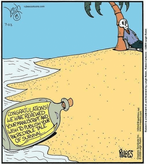Paul Whybrow
Full Member
This Guardian article is worth a read, including the Comments at the bottom:
Why do writers need agents? To keep track of the rejections
Written by Chris Paling, I like his anecdote about sending his literary agent a multiple-choice questionnaire in an attempt to get an answer from her.
I gave up on querying literary agents two years ago, disillusioned by the process, I decided to concentrate on self-publishing. From 2014 – 2019 I made almost 800 submissions, of which 250 were totally ignored, undeserving of a form letter of rejection. When I say ‘ignored’ I include 150 not even being opened, as shown by the mailtrack app for Gmail.
If you’re new to querying, be aware that your carefully crafted submission package won’t necessarily be read by a literary agent. It could be browsed by an unpaid internee on work experience, someone with no experience in the publishing industry. Also, literary agents employ readers, who are paid on a piece-rate basis, so imagine how much attention they pay to your writing.
Thoughts please @AgentPete

Why do writers need agents? To keep track of the rejections
Written by Chris Paling, I like his anecdote about sending his literary agent a multiple-choice questionnaire in an attempt to get an answer from her.
I gave up on querying literary agents two years ago, disillusioned by the process, I decided to concentrate on self-publishing. From 2014 – 2019 I made almost 800 submissions, of which 250 were totally ignored, undeserving of a form letter of rejection. When I say ‘ignored’ I include 150 not even being opened, as shown by the mailtrack app for Gmail.
If you’re new to querying, be aware that your carefully crafted submission package won’t necessarily be read by a literary agent. It could be browsed by an unpaid internee on work experience, someone with no experience in the publishing industry. Also, literary agents employ readers, who are paid on a piece-rate basis, so imagine how much attention they pay to your writing.
Thoughts please @AgentPete

